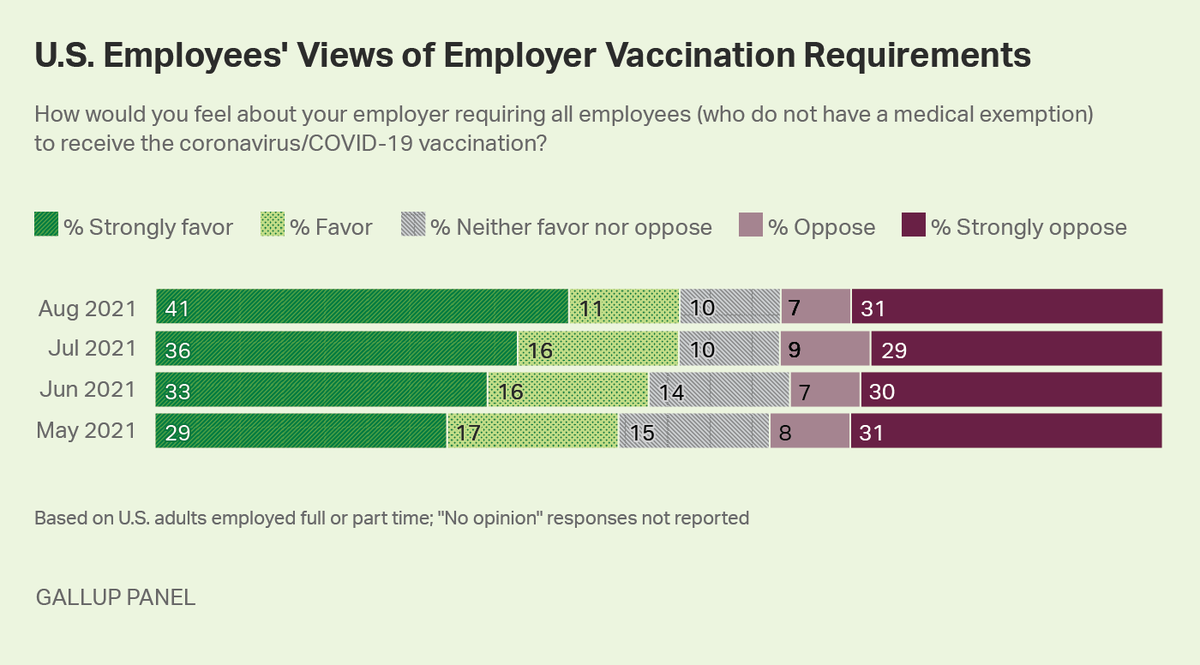
Whether people are willing to tell strangers their vaccine status over the phone is actually one of the things that we have an excellent way of testing -- there's CDC data to compare it to!
So far, many public polls tracking this look pretty accurate.
pewresearch.org/fact-tank/2021…
So far, many public polls tracking this look pretty accurate.
pewresearch.org/fact-tank/2021…
https://twitter.com/PeterHamby/status/1448001919109136384
None of this is to say that election polling doesn't have ongoing issues, or even that polling around vaccines/mandates isn't subject to them (there are some less rosy assessments out there as well). But this is really one of the *more* directly measurable questions out there.
Which is to say, using the Virginia election results as a proxy for whether polling on vaccines is accurate seems a lot more complicated than just...looking at whether the percentage of people who say they're vaccinated is accurate to the public health data we're already keeping.
• • •
Missing some Tweet in this thread? You can try to
force a refresh
















